Speakers
Day 1:

Keynote Speaker:
Darrell M. Gray, II, MD, MPH, Chief Health Equity Officer, Elevance Health Inc.
Darrell M. Gray, II, MD, MPH, FACG, is an outspoken health equity advocate, a clinical and policy expert, and a passionate voice for a better healthcare system. As the inaugural chief health equity officer for Elevance Health, he leads the execution of comprehensive strategy to advance health equity through a whole-health approach (addressing physical, behavioral, social, and pharmacy needs) among Elevance Health’s more than 45 million members and their respective communities.
Prior to joining Elevance Health, Gray was an associate professor of medicine at The Ohio State University, where he served as a practicing gastroenterologist and medical director of healthy communities for The Ohio State University Wexner Medical Center, as well as deputy director of the Center for Cancer Health Equity at The Ohio State University Comprehensive Cancer Center. Gray serves in multiple national and local organizations aiming to advance health
equity through innovation in community engagement, care delivery, research, and patient and provider education. He is co-founder of the Association of Black Gastroenterologists and Hepatologists and a past chair of the American College of Gastroenterology Diversity, Equity and Inclusion Committee. Dr. Gray is a native of Baltimore, Maryland, and graduate of Morehouse College and Howard University College of Medicine. He completed his residency at Duke University Medical Center and gastroenterology fellowship at Washington University, subsequently earning a master’s degree in public health at the Harvard T.H. Chan School of Public Health as a Commonwealth Fund Fellow.
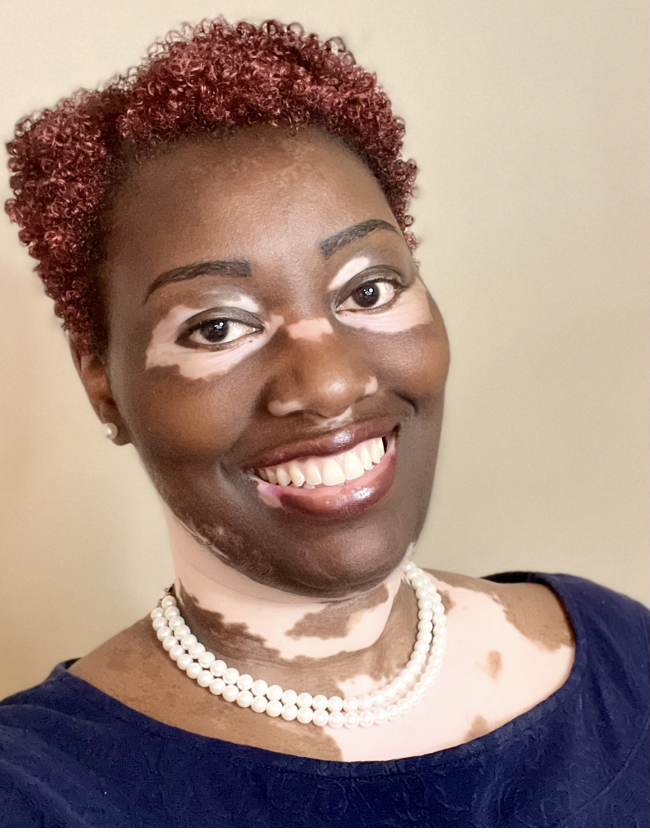
Session: Research Strategic Dialogue Panel: Meaningful Patient Engagement: Gender Equity and the Crossroads of Infectious Disease
Irene O. Aninye, PhD, Chief Science Officer, Society for Women’s Health Research
Irene O. Aninye, PhD, is the Chief Science Officer at the Society for Women’s Health Research, a national nonprofit dedicated to improving women’s health through science, policy, and education. She steers SWHR’s portfolio of science programs to increase awareness and investment in research on biological sex differences and health conditions and diseases that differently, disproportionately, or exclusively affect women. Prior to SWHR, Aninye led strategy teams for the American Association for the Advancement of Science to develop and evaluate STEM research and training programs for universities. Dr. Aninye’s research background is in endocrinology and metabolism – investigating sex steroid hormones and their receptor-mediated actions in development, reproduction, and disease.
Beyond the bench, she has dedicated her career to academic service and community engagement, facilitating scientific and leadership development opportunities for researchers, professionals, and students of all ages and career stages. With a passion to diversify the face of STEM and increase the equity and involvement of underrepresented groups in the sciences, Aninye mentors early career scholars, and has provided leadership on committees and advisory boards for organizations, such as the National Institutes of Health, Endocrine Society, Johns Hopkins, and University of Maryland Baltimore County. A Washington, DC, native, Irene earned her BS in Biochemistry as a Meyerhoff Scholar at UMBC and a PhD in Molecular and Integrative Physiology from the University of Illinois at Urbana-Champaign.

Session: Research Strategic Dialogue Panel: Meaningful Patient Engagement: Gender Equity and the Crossroads of Infectious Disease
Gail Graham, HIV/AIDS Activist and Patient Professor, University of Maryland PATIENTS Program
Since her diagnosis on April 22, 1997, Gail has dedicated herself to the fight against HIV/AIDS. In May of 2009, she began the HIV/AIDS Ministry-Outreach Services at the Mount Lebanon Baptist church where she continues to serve as Director. In 2010, Ms. Graham went on to become a Commissioner on the Baltimore City Commission on HIV/AIDS Prevention and Treatment and continues to serve in that capacity on the now Baltimore City HIV Planning Group. She received certification as an HIV/AIDS tester and counselor through Jacques Initiatives and since 2012, also serves as the Global Representative of Johns Hopkins University AIDS Clinical Trial Group Network Community Advisory Board.
In 2014, she met Dr. Daniel Mullins and his team from the University of Maryland PATIENTS Program. Dr. Mullins became a mentor to her, reminding her of the importance of her voice as a patient as well as an advocate. She consequently began serving as a Stakeholder
Advisory Board member on funded projects and has co-presented with Dr. Mullins at numerous federal agencies, patient advocacy, and private sector venues. Ms. Graham has become a Patient Professor through the PATIENTS Professor Academy, which encourages, teaches, and connects people from all walks of life so that they too can make their communities a better place. Ms. Graham is a published author in the British Medical Journal, penning an article entitled “The Impact of a Name,” born out of a personal experience in her Dr’s office which effected social justice in the HIV/AIDS patient community. She has subsequently become an official Patient Reviewer for the British Medical Journal, submitting her first two reviews on pending research articles. In 2017, Ms. Graham became a board member on the Institute for Medicaid Innovation National Advisory Board. In 2019, she became a board member of the National Advisory Committee (NAC) for the Community Solutions for Health Equity Program. In 2019, Ms. Graham was also inducted into the SisterLove, Inc. 2020 Leading Women’s Society. She brings all this and more to the board of Ishshah’s Place as its Community Engagement Officer. She looks forward to helping survivors of intimate partner violence find joy and live an abundant life.
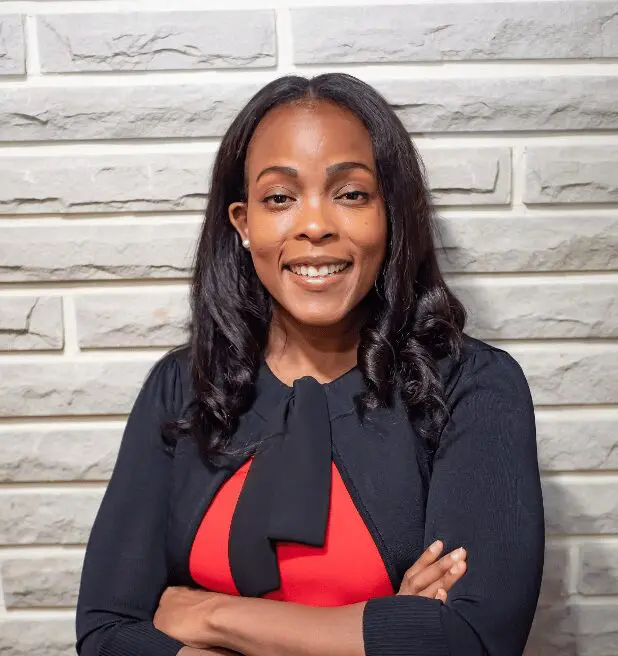
Session: Research Strategic Dialogue Panel: Meaningful Patient Engagement: Gender Equity and the Crossroads of Infectious Disease
Shanina Knighton, PhD, RN, CIC, Executive Director for Research Practice and Innovation, Association for Professionals in Infection Control and Epidemiology (APIC)
Shanina Knighton, PhD, RN, CIC is the Executive Director of the Association for Professionals in Infection Control and Epidemiology’s (APIC) Center for Research Practice and Innovation and an adjunct associate professor at Case Western Reserve University in the schools of nursing and engineering. Overall, the work of APIC’s Center focuses on advancing the field of infection preventionists, providing evidence-based practice tools and driving forth emerging science in infection prevention and control including the modernization of safe staffing requirements of Infection Preventionists and hygiene poverty in relation to infections.
Dr. Knighton, a nurse scientist and infection preventionist federally funded research focuses on the design, development, and evaluation of interventions including wearable sensors, machine learning, and simple technology to support infection prevention self-management strategies for and by patients. She has successfully secured multiple federal grants and foundation grants to support her research including a R01, a mentored-career award and pilot funding to support her growing expertise. During COVID-19, Dr. Knighton develops infographics with practical infection prevention strategies tips for disadvantaged communities. Her work has been featured through different mediums including Forbes, FOX News, and Self Magazine and disseminated by the State of Ohio, the American Nurses Association, and the New York State Board of Education. She recently concluded two years of serving as convenor for the hand hygiene technical standard development for international standards organization.

Session: Research Strategic Dialogue Panel: Meaningful Patient Engagement: Gender Equity and the Crossroads of Infectious Disease
Marissa Robinson, DrPH, MPH, RPCV, Management Analyst, Office of Infectious Disease and HIV/AIDS Policy, U.S. Department of Health and Human Services (HHS)
Dr. Marissa Robinson is a Management Analyst for the U.S. Department of Health and Human Services’ Office of Infectious Disease and HIV/AIDS Policy (OIDP) within the Office of the Assistant Secretary for Health (OASH) in Washington, DC. Dr. Robinson provides technical assistance and leads components of the Ending the HIV Epidemic in the U.S. (EHE) initiative. Dr. Robinson serves in several capacities including director of webinar implementation, liaison for Prevention through Active Community Engagement (PACE) Commissioned Corps Officers, and overseeing the operation and management of the HIV team.
Dr. Robinson is a DMV native and is trained in infectious disease epidemiology. She has conducted extensive HIV/AIDS research for over a decade. Prior to her joining OIDP, she began her federal career when she joined the United States Peace Corps as a Community Health and Malaria Prevention volunteer in Togo, West Africa. After returning to the US, Dr. Robinson worked at the Health Resources and Services Administration (HRSA) in the HIV/AIDS Bureau (HAB) on global infectious disease surveillance supporting the President’s Emergency Plan for AIDS Relief (PEPFAR) initiative. Following her time at HRSA, Dr. Robinson joined the Centers for Disease Control and Prevention (CDC) where she conducted and maintained data analytics for a Nursing and Midwifery initiative on behalf of PEPFAR for 13 African countries. After her time at CDC, Dr. Robinson joined the CDC Foundation on the Teens Linked to Care pilot program with the CDC’s Division of Adolescent and School Health which focused on substance use and sexual risk among youth in rural populations.
Dr. Robinson recently completed her Doctorate of Public Health degree as a Goldseeker Scholar at Morgan State University’s School of Community Health and Policy. Her dissertation was entitled “A Qualitative Exploration of Preexposure Prophylaxis Among Black Women Attending a Historically Black College and University in the Northeastern United States”. Dr. Robinson completed her doctoral fellowship training at Johns Hopkins School of Medicine Pre-Doctoral Clinical Research Training Program. Dr. Robinson received her Masters of Public Health with a concentration in global health, infectious diseases, and a certificate in socio-contextual determinants of health from Emory University’s Rollins School of Public Health and her Bachelors of Arts in psychology and public health from Spelman College.
Day 2:
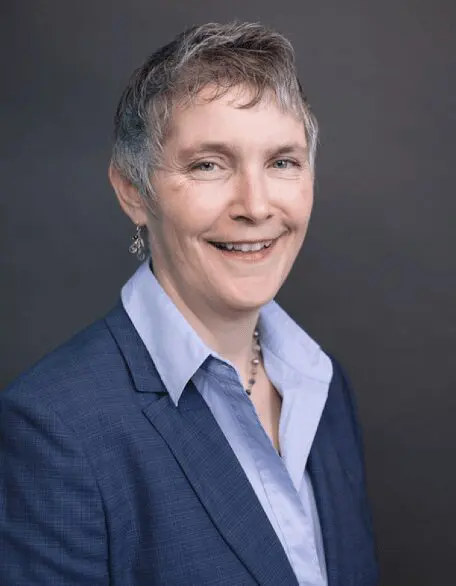
Keynote Speaker:
Kristin Carman, MA, PhD, Director of Public and Patient Engagement, PCORI
Kristin L. Carman, PhD, is the Director of Public and Patient Engagement at the Patient-Centered Outcomes Research Institute (PCORI). In this position, she is responsible for leading and directing PCORI’s overall efforts to see that patients and other health care stakeholders are fully involved in and guide all aspects of PCORI’s work. She leads the science of engagement at PCORI, including developing the practice and evidence on engagement through intramural efforts and external funding.
Dr. Carman previously was at the American Institutes for Research, where she served as Vice President and Director of the Center for Patient and Consumer Engagement, and Director of the Health Policy and Research Group, a team of more than 100 health services research professionals. In that role, she helped conduct research on issues of public importance in health care quality, access, and financing; comparative effectiveness; patient and family engagement; health systems improvement; public deliberation; and health-related communications.
She led groundbreaking engagement projects funded by the Agency for Healthcare Research and Quality (AHRQ), and numerous foundations including the California HealthCare Foundation, Moore Foundation, and Robert Wood Johnson.
Dr. Carman has spearheaded engagement research projects including a randomized clinical trial on deliberative methods, development of an influential framework on engagement in health care, and the development and translation of complex scientific information and concepts for the public and patients. She has published extensively, speaks frequently to a variety of audiences, and has worked closely with many health care stakeholders throughout her career. She also previously served as an inaugural member of PCORI’s Advisory Panel on Patient Engagement.

Session: Global Health Equity and Patient Engagement
Nicholas Brooke, Executive Director, The Synergist
Nicholas Brooke is the Founder and Executive Director of The Synergist, an incubator and managing organization of multistakeholder platforms that brings key players together with the express aim of solving significant societal problems, including Patient Engagement, through collective action. The Synergist also helps individual organizations to build capacity and capability to better engage with key stakeholders in partnerships across the public-private spectrum. Under Nicholas’ leadership, The Synergist acts as a backbone, providing vision, strategy, stakeholder alignment and execution on multiple international, multi-stakeholder programs.
Bringing his Synergist and caregiver hats together, he is the Executive Director of PFMD.org, a pre-competitive multistakeholder global collaborative platform dedicated to stimulating innovation in medicine and device lifecycles, digital health, and health system through systematic patient engagement, WITH patients.
Nicholas Brooke is and economist by training and was previously CEO of an award-winning digital agency, providing cutting-edge digital strategy to global corporations across multiple sectors. His deep understanding of how digital health can facilitate and accelerate collective action and generate evidence for informed decisions drove him to see the potential for an independent organization that can enable partnerships and drive them to jointly solve societal challenges.

Session: Lessons learned from the 2020 Clinical Trials Treatment Act: Increasing access to clinical trials in Medicaid and diverse patients
Ricki Fairley, Chief Executive Officer, TOUCH, The Black Breast Cancer Alliance
As a Triple Negative Breast Cancer Survivor/Thriver, Ricki’s personal purpose, passion, mission, ministry, and blessing is to bring focus, attention, research, science, and action to eradicating Black Breast Cancer, and supporting and coaching what she calls her “Breasties” through their breast cancer experience.
Ricki is an award-winning seasoned marketing veteran that has transformed her strategic acumen into breast cancer advocacy. Ricki co-founded and serves as CEO of TOUCH, The Black Breast Cancer Alliance to address Black Breast Cancer as a unique and special disease state, with the overall goal of reducing the mortality rate for Black women. Ricki founded and serves as co-host for “The Doctor Is In,” a weekly live breast cancer advocacy web series on the BlackDoctor.org Facebook page that reaches over 3 million viewers. She is a founding member of #BlackDataMatters, in partnership with
Ciitizen, The Center for Health Care Innovation and Morehouse School of Medicine to encourage and elevate the importance of Black Women participating in clinical trial research. In January 2022, she started the When We Tri(al) Movement to change the game on Black women participating in clinical trials to improve outcomes for Black women with breast cancer. Ricki serves on the Board of Trustees for the Triple Negative Breast Cancer Foundation where she chairs the marketing committee. She is a board member for the Center for Healthcare Innovation and serves on the National Minority Quality Forum Scientific Advisory Board.
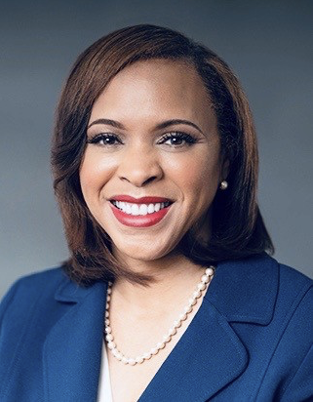
Session: Mental Health and Patient Science: How COVID-19 reframed our research, outreach, and clinical-community linkages
Regina James, MD, Chief, Division of Diversity and Health Equity, American Psychiatric Association (APA)
Regina James, MD, serves as the APA’s Deputy Medical Director and Chief of the Division of Diversity and Health Equity where she is responsible for ensuring that diversity and mental health equity objectives are valued and operationalized as vital components of the APA’s mission. She is a child and adolescent psychiatrist with over 25 years of experience, providing leadership and direction in the planning, policy development and implementation of national and international health disparity programs and initiatives for children and families.
Dr. James served in numerous leadership positions including Chief Medical Officer and Senior Vice President at 2M Clinical, a clinical research organization and consultancy; Director of Clinical and Health Services Research at the National Institute on Minority Health & Health Disparities, where she led promotion and development of scientific programs that address gaps in minority health and
healthcare disparities; and the Director of the Office of Health Equity at the Eunice Kennedy Shriver National Institute on Child Health & Human Development, where she led domestic and international programs addressing maternal and child health disparities.
Dr. James completed an NIH research fellowship at the National Institute of Mental Health (NIMH) Child Psychiatry Branch, where she conducted clinical trials in children and adolescents diagnosed with attention deficit hyperactivity disorder and other behavioral disorders. She also served as a Special Expert at the NIMH providing child psychiatric and clinical research consultation.
Dr. James received both her Bachelor of Science in Psychology/Biology and her MD from the University of California, Los Angeles. She completed a residency in general psychiatry and fellowship in child and adolescent psychiatry at the Cleveland Clinic Foundation and completed leadership training at the Harvard Kennedy School Executive Education Program. She has lectured and published in the areas of health and healthcare disparities and has appeared on national media outlets addressing stigma surrounding mental illness in communities of color, improving access to care and the importance of demonstrating cultural humility when providing mental health care to individuals from diverse backgrounds.
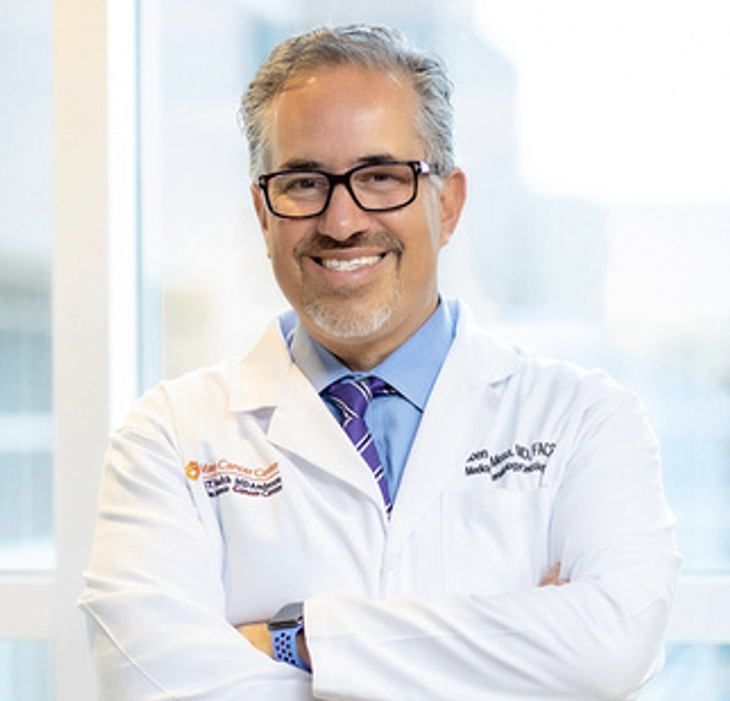
Session: Lessons learned from the 2020 Clinical Trials Treatment Act. Increasing access to clinical trials in Medicaid and diverse patients
Ruben A. Mesa, MD, FACP, Executive Director, Mays Cancer Center at UT Health San Antonio MD Anderson
Ruben Mesa, MD, FACP, executive director of the Mays Cancer Center at UT Health San Antonio, is an international expert who has dedicated his life’s work to research and drug development for myeloproliferative neoplasms (MPNs), a group of chronic leukemias that can cause difficult symptoms, bone marrow problems, acute leukemia and premature death. He has been involved in MPN research for more than 20 years, focusing on MPN biology, novel therapeutics and phase I-III clinical trials, symptom assessment tools and non-pharmacological interventions to alleviate MPN symptoms. Over the past 11 years, Dr. Mesa has led or co-led the development of six drugs that have been FDA approved for these chronic leukemias.
Dr. Mesa was the inaugural panel chair of the National Comprehensive Cancer Network’s (NCCN) guideline panel for the first USA guidelines for MPNS (myelofibrosis, polycythemia vera and essential thrombocythemia). Dr. Mesa is a funded investigator of the National Cancer Institute (NCI) on several projects in myeloproliferative neoplasms and has been appointed to the NCI Clinical Trial Advisory Committee. He plays a range of leadership roles with the American Society of Hematology (ASH), the American Association of Cancer Research (AACR), and is currently elected to the Board of the American Association of Cancer Institutes (AACI) and Leukemia and Lymphoma Society.
In addition to Dr. Mesa’s extensive MPN research and clinical practice, he is passionate about advancing cancer health equity and increasing minority patients’ participation in cancer clinical trials. He helped implement a mandate that each new trial at the Mays Cancer Center has a Minority Accrual Plan that includes enrollment projections and a demographic-specific toolbox with strategies for clinical investigators to promote enrollment. He is involved in numerous national initiatives to increase clinical trial diversity, including being a member of the Genentech Health Disparities Task Force, Bristol Myers Squibb Health Disparities Task Force and the Janssen Health Disparities Task Force. In March 2022, he testified on the importance of clinical trial diversity before the House Committee on Energy and Commerce. Dr. Mesa also co-led the Mays Cancer Center’s biennial Advancing the Science of Cancer in Latinos Conference held in San Antonio.
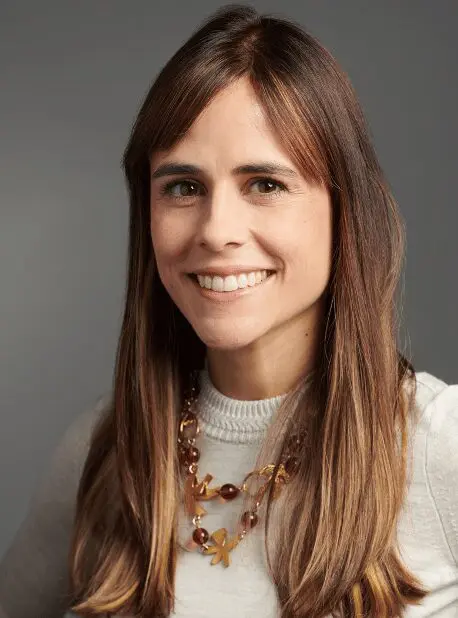
Session: Dismantling health disparities by building trust and patient centricity in life science
Jennifer Miller, PhD, Associate Professor, Yale University School of Medicine
Jennifer E. Miller, PhD, is an Associate Professor in Yale School of Medicine, President of the nonprofit Bioethics International, and Founding Director of the Good Pharma Scorecard, an index that ranks biotechnology, pharmaceutical and medical device companies on their bioethics and social responsibility performance. Dr. Miller’s current research focuses on developing accountability metrics and policy guidance for responsible, trustworthy, and equitable biomedical research, healthcare data sharing, access to medicines and vaccines, and use of AI/ML in medicine.
Her work is supported by numerous grants, including from the FDA and NIH. Prior to joining Yale’s faculty, Dr. Miller was an Assistant Professor at NYU School of Medicine and completed her training in physics, bioethics, regulatory governance, and ethics at Fordham University, Regina Apostolorum, Duke University, and Harvard University.

Session: Lessons learned from the 2020 Clinical Trials Treatment Act. Increasing access to clinical trials in Medicaid and diverse patients
Alexis Reisin Miller, Executive Director, Global Regulatory Policy (US Lead) at Merck
Alexis Reisin Miller leads the U.S. regulatory policy group at Merck & Co., Inc. Alexis has advised a range of innovative biopharmaceutical industry players over her 20+ year career, helping clients speed development and approval of new therapies. She held similar roles at Sanofi and Eisai, leading U.S. policy, and also served as Regulatory Counsel in the Office of Regulatory Policy at FDA’s Center for Drugs.
Some of Alexis’ areas of focus have included: identifying and leveraging flexibilities in regulatory pathways and assessments, advancing regulatory science related to substantial evidence determinations, patient-informed drug development and benefit-risk frameworks, embedding diversity into clinical research and related mapping in regulatory documents, regulation of digital health tools, rare disease and pediatric drug development, advertising and promotion, labeling/ eLabeling, and harnessing digital technologies to inform strategy and health authority interactions. Her work over the past years has included a focus on helping ensure that patient input points are considered holistically, throughout the drug development timeline, and that tools to advance the efficiency of
patient outcomes and input are supported through the regulatory, legislative, and policy processes. Prior to her in-house policy roles, Alexis worked as both an associate and as a partner at a large international law firm, counseling clients on FDA regulatory legal and policy matters.
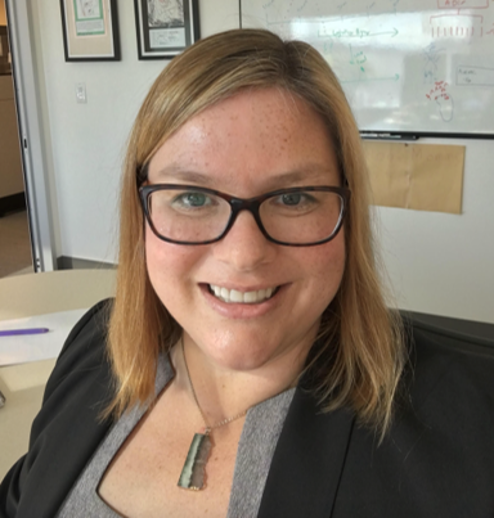
Session: Lessons learned from the 2020 Clinical Trials Treatment Act. Increasing access to clinical trials in Medicaid and diverse patients
Alycia Shilton-Lloyd, PhD, Vice President of Medical Affairs, Imago BioSciences, Inc.
Dr. Alycia Shilton-Lloyd is Vice President of Medical Affairs at Imago BioSciences, a clinical-stage biopharmaceutical company discovering and developing new medicines for the treatment of myeloproliferative neoplasms (MPNs) and other bone marrow diseases. Imago strongly believes in a Patient Focused Drug Development (PFDD) approach, and Alycia’s prior experience and involvement in PFDD strategy has provided crucial input into Imago’s recent Phase 2 and 3 planning activities. Alycia and her team have developed a Diversity, Equity and Inclusion (DEI) approach for clinical study access that leverages Imago’s core patient engagement strategy, as well as the six overreaching recommendations with the American Society of Clinical Oncology (ASCO) and Association of Community Cancer Centers (ACCC) joint DEI Statement.
Prior to joining Imago, Alycia served as Executive Director, Medical Education and Strategic Planning at Gilead Sciences, where she led the global Strategic Planning, Patient Engagement, Learning & Development and Medical Education and Programs teams. Alycia received a Ph.D. in Molecular, Cellular and Developmental Biology, an M.S. in Biology, and a Masters in Philosophy from Yale University. Her research experience included identification of a novel interaction between hormone response and cell-adhesion pathways, and the coordination of three labs at Yale and Miami University (Ohio). Alycia has also served as the Chief Scientific Officer of GeneEd, Inc, an early-stage company developing scientific e-Learning applications for pharmaceuticals and life sciences corporations. She has lectured at the university undergraduate level and served as an advisor and adjunct faculty member for the San Francisco State University Clinical Research Associate program.
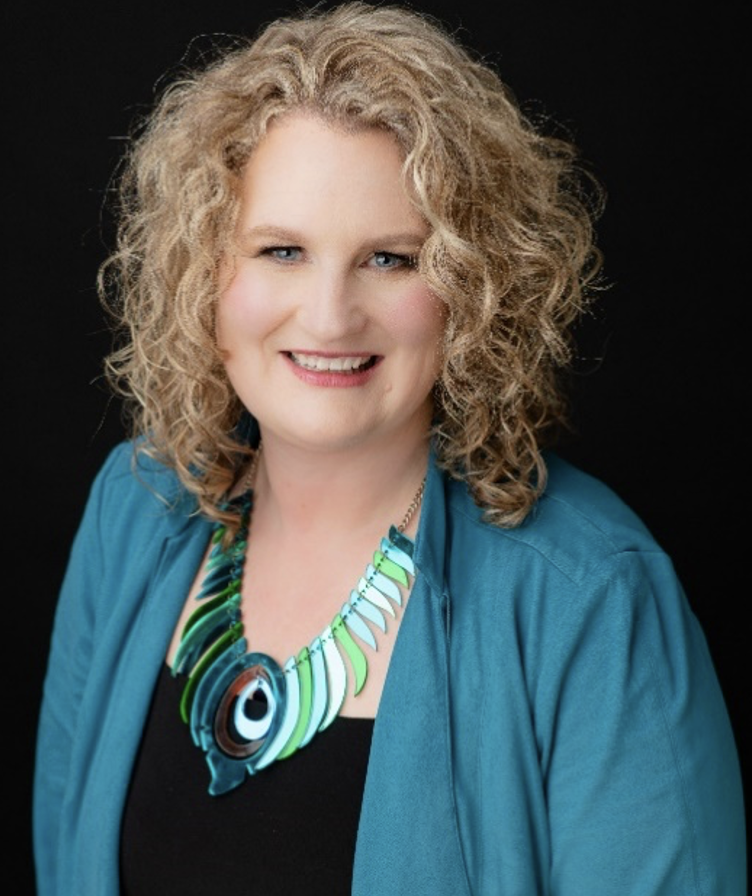
Session: Patient Science and the Social Determinants of Health Policy
Carrie D. Wolinetz, PhD, Deputy Director for Health and Life Science, White House Office of Science and Technology Policy
Carrie D. Wolinetz, PhD, is the Deputy Director for Health & Life Sciences for the White House Office of Science and Technology Policy (OSTP), where she advances priority presidential efforts including pandemic preparedness, health systems & health equity, and accelerating innovation to patients. Prior to joining OSTP, she served as Acting Chief of Staff to the Director of the National Institutes of Health (NIH), as well as the NIH Associate Director for Science Policy, and Director of NIH’s Office of Science Policy.
During her time at NIH, Carrie led development of significant agency policies, including data management and sharing, clinical trials stewardship reform, and addressing sexual harassment, and stood up the Novel and Exceptional Technology & Research Advisory Council (NExTRAC). Before entering government service, Dr. Wolinetz worked for the Association of American Universities (AAU) as Deputy
Vice President for Federal Relations. She also has served as President of United for Medical Research, and at the Federation of American Societies for Experimental Biology (FASEB) as Director of Scientific Affairs and Public Relations.